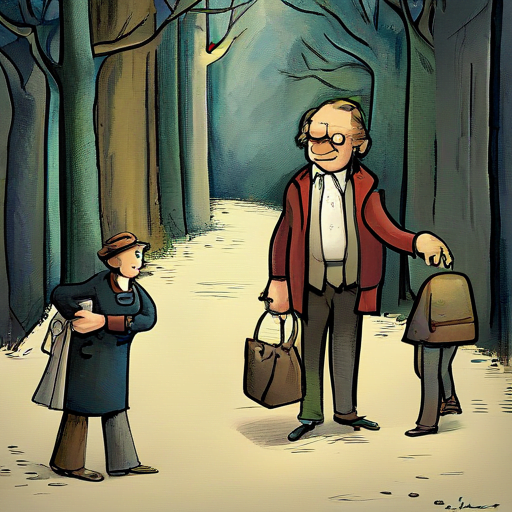Have you ever heard someone use an expression that seems to make no sense at all? Maybe they told you to ‘break a leg’ before a performance, or said they were ‘over the moon’ about some news. These are called idioms, and they’re a fascinating aspect of language that we use every day without even realizing it.
In this article, we’ll explore the origins of common idioms and phrases and uncover some surprising facts about their meanings. You might be surprised to learn that many idioms have historical or cultural roots that explain their meanings. For example, the phrase ‘rule of thumb’ has a dark history – it refers to a law that allowed men to beat their wives with a stick no thicker than their thumb.
Other idioms have surprising origins that you’d never guess just from hearing them. Did you know that the phrase ‘butter someone up’ comes from an ancient Hindu practice of throwing butter balls at statues of gods to seek their favor? Learning about the origins of these expressions can give us a deeper appreciation for the richness and complexity of language.
Table of Contents
Brief Explanation of Idioms and Phrases

You’ll quickly understand how we use everyday language when you learn about the meanings behind the sayings we often take for granted.
Idioms are phrases that have a figurative meaning, rather than a literal one. For example, when someone says “kick the bucket,” they’re not actually talking about kicking a bucket! Instead, they’re using an idiom to mean “to die.”
Phrases, on the other hand, can be both literal and figurative. “Hold your horses” is a phrase that means to wait or be patient. It comes from the days of horse-drawn carriages, when it was necessary to literally hold the horses in order to keep them from running off too quickly.
Understanding the origins of idioms and phrases can help you communicate more effectively and appreciate the richness of language.
Idioms with Surprising Origins

Hey there! Did you know that some idioms have surprising origins?
Take ‘raining cats and dogs,’ for example. It actually dates back to the 17th century when heavy rain would sometimes wash dead animals into the streets.
Or how about ‘biting the bullet’? This phrase originated from soldiers having to bite on bullets during surgery to dull the pain.
And even ‘rule of thumb’ has a dark origin. It refers to the size of a stick that a man was legally allowed to beat his wife with.
Crazy, right?
Raining Cats and Dogs
You may be surprised to learn that the phrase ‘raining cats and dogs’ actually has a fascinating history behind it. It’s believed that the origins of this idiom date back to the 17th century in England, where houses were often built with thatched roofs.
These roofs were made of straw and often had small animals, such as cats and dogs, living in them to keep the rodent population under control. When it rained heavily, the thatched roofs would become slippery and the animals would often slip and fall off, appearing as if they were raining down from the sky.
The phrase became popularized in the 18th century and has been used ever since to describe a heavy downpour of rain. While it may seem like a strange comparison, the history behind ‘raining cats and dogs’ is a reminder of how language and idioms can evolve over time, often taking on meanings that are far removed from their original origins.
Biting the Bullet
Let’s delve into the fascinating history behind the phrase ‘biting the bullet’, which has become a common expression to describe facing a difficult or unpleasant situation with bravery and fortitude.
The origin of this phrase dates back to the 1800s when soldiers, during the time of war, used to bite on bullets to endure the pain of surgery during amputations. The idea was to provide the patient with something to bite down on to distract them from the agony of the procedure.
Over time, the phrase ‘biting the bullet’ evolved to refer to any situation where someone had to face pain or difficulty with courage. It has come to be associated with the idea of grit and endurance, and reminds us that sometimes the only way to get through a tough time is to push through it with determination and bravery.
So, the next time you find yourself in a challenging situation, just remember the history behind the phrase ‘biting the bullet’, and take inspiration from those who had to endure much more significant challenges to overcome their difficulties.
Rule of Thumb
As you delve into the current section on the Rule of Thumb, you’ll gain insights into a fascinating historical concept that has endured for centuries.
The phrase ‘rule of thumb’ has become a common idiom, but its origins date back to the 17th century. At that time, it was common practice for tailors to use the length of their thumb as a measurement for fabrics. This method was often used as an estimate, rather than an exact measurement, and was considered a reliable rule of thumb.
The rule of thumb was also used in agriculture, as farmers would use their thumbs to estimate the depth at which they should plant their seeds.
The phrase eventually evolved to include any general guideline or rule that was based on experience rather than precise measurements.
Today, the rule of thumb is still used to describe a general principle or guideline that is based on practical experience, rather than scientific calculation.
Idioms with Historical Background

You’ll find that many expressions we use today have fascinating historical backgrounds, shedding light on the cultural, social, and political contexts of the past.
For example, the phrase ‘rule of thumb’ has a dark history. It was believed that a man could legally beat his wife with a stick as long as it was no thicker than his thumb. This barbaric practice was eventually outlawed, but the phrase ‘rule of thumb’ stuck around as a reminder of this gruesome past.
Other idioms with historical background include ‘mad as a hatter’ which originates from the fact that hat makers in the past used mercury to stiffen the felt, causing many of them to go insane.
The phrase ‘kick the bucket’ comes from the idea of using a bucket to hang oneself, while the phrase ‘saved by the bell’ comes from a fear of being buried alive and having a bell installed in coffins for people to ring if they woke up underground.
These idioms may seem harmless now, but their origins are a reminder of the strange and often brutal history of our language.
Idioms with Cultural Roots

You may not realize it, but many expressions we use have deep cultural roots that reflect the values and beliefs of different societies throughout history.
For instance, the expression ‘spill the beans’ can be traced back to ancient Greece, where people voted by placing a white bean in a jar to signify a ‘yes’ vote and a black bean for a ‘no’ vote. If someone accidentally spilled the beans, it would reveal the results of the vote before it was supposed to be announced, hence the idiom’s current meaning of revealing a secret.
Another example is the phrase ‘break a leg,’ which is commonly used to wish performers good luck before a show. Its origin is uncertain, but one theory suggests that it comes from the superstition that wishing someone good luck actually brings bad luck. The phrase ‘break a leg’ was therefore used as a way to ‘reverse jinx’ the performer and actually bring them good luck.
This cultural belief in the power of words and superstitions is reflected in the idioms we use today.
The Evolution of Idioms and Phrases

The evolution of expressions can be seen as a journey through time, with each era adding new layers of meaning and cultural significance to the words we use today.
For instance, the phrase ‘the apple of my eye’ has its roots in ancient Hebrew and Greek literature. The phrase referred to the central point of the eye, which was believed to be the most valuable and protected part of the body. Over time, the phrase came to mean someone or something that is cherished and held in high regard.
Similarly, the phrase ‘barking up the wrong tree’ has its origins in hunting. Dogs would bark up the wrong tree, signaling to the hunter that they had mistakenly pursued the wrong prey. Today, the phrase is used to describe someone who is pursuing the wrong course of action or targeting the wrong person.
These examples illustrate how idioms and phrases have evolved over time, adapting to changes in culture and language, while still retaining their original meaning and significance.
Frequently Asked Questions
How do idioms and phrases differ from one language to another?
When it comes to idioms and phrases, it’s important to remember that not all languages have the same ones. In fact, a phrase that makes perfect sense in one language may not make any sense at all in another.
This is because idioms and phrases are often rooted in cultural and historical contexts, which can vary widely from one language to another. For example, in English we might say ‘break a leg’ to wish someone good luck, but in Spanish they might say ‘mucha mierda’ (literally ‘lots of shit’).
While this might seem odd to English speakers, it actually makes sense in the context of Spanish theater culture, where saying ‘good luck’ is considered bad luck.
So the next time you hear an idiom or phrase in another language, take a moment to appreciate the cultural context that gave rise to it.
Are there any idioms or phrases that have fallen out of use over time?
Have you ever heard someone use an idiom or phrase that you didn’t quite understand? It’s possible that it’s an outdated expression that has fallen out of use over time.
Language is constantly evolving, and certain idioms and phrases that were popular in the past may no longer make sense in modern times. For example, ‘spitting image’ used to refer to someone who looked exactly like their parent, but now it’s more common to say ‘carbon copy’ or ‘twinning.’
Similarly, ‘butter wouldn’t melt in their mouth’ used to describe someone who appeared innocent but was actually cunning, but now it’s more likely to say ‘two-faced’ or ‘deceptive.’
As our culture and language continue to change, it’s possible that even more idioms and phrases will fall out of use and be forgotten over time.
Have any idioms or phrases been created in recent years due to technological advancements or changes in society?
Do you ever find yourself using phrases like ‘Google it’ or ‘slide into my DMs’?
These are just a couple of examples of idioms and phrases that have emerged in recent years due to technological advancements and changes in society.
With the rise of social media and internet culture, new phrases and idioms have become a part of our everyday language.
Some of these phrases may not have even existed a decade ago, but now they’re used so frequently that they’ve become a part of our vernacular.
As technology continues to evolve, it’s likely that we’ll see even more new idioms and phrases emerge in the coming years.
How do idioms and phrases evolve over time and adapt to changes in language and culture?
As language and culture evolve, idioms and phrases also adapt to these changes. Over time, certain expressions may lose their original meanings or become outdated. New idioms can emerge from popular culture, such as social media trends or memes.
Additionally, idioms can be influenced by regional dialects or slang. It’s important to keep in mind that idioms and phrases are not set in stone and can vary depending on the context and audience.
As language continues to evolve, so will the idioms and phrases we use to express ourselves.
Are there any idioms or phrases that have different meanings based on their context or the region in which they are used?
You might be surprised to learn that some idioms and phrases can have different meanings depending on where you are and the context in which they’re used.
For example, the phrase “let’s table this” in American English means to postpone or set aside a topic for later discussion, while in British English it means to bring a topic up for discussion.
Similarly, the phrase “I could care less” is commonly used in the United States to express disinterest, but in other English-speaking countries, it’s often viewed as nonsensical or incorrect because the intended meaning is actually “I couldn’t care less.”
It’s important to be mindful of these differences when communicating with people from different regions or cultural backgrounds to avoid confusion or misunderstandings.
Conclusion
Congratulations, now you know the fascinating origins of some common idioms and phrases.
From the surprising history of ‘rule of thumb’ to the cultural roots of ‘butterflies in your stomach,’ these expressions have a rich backstory that sheds light on the language we use every day.
But idioms and phrases are not static. They continue to evolve over time, adapting to new contexts and changing meanings.
So, the next time you hear someone say ‘break a leg’ or ‘spill the beans,’ take a moment to appreciate the history behind these words and the ongoing evolution of language.
Who knows, maybe you’ll even start using them in a new and unexpected way. Keep exploring the fascinating world of idioms and phrases and see where they take you!
